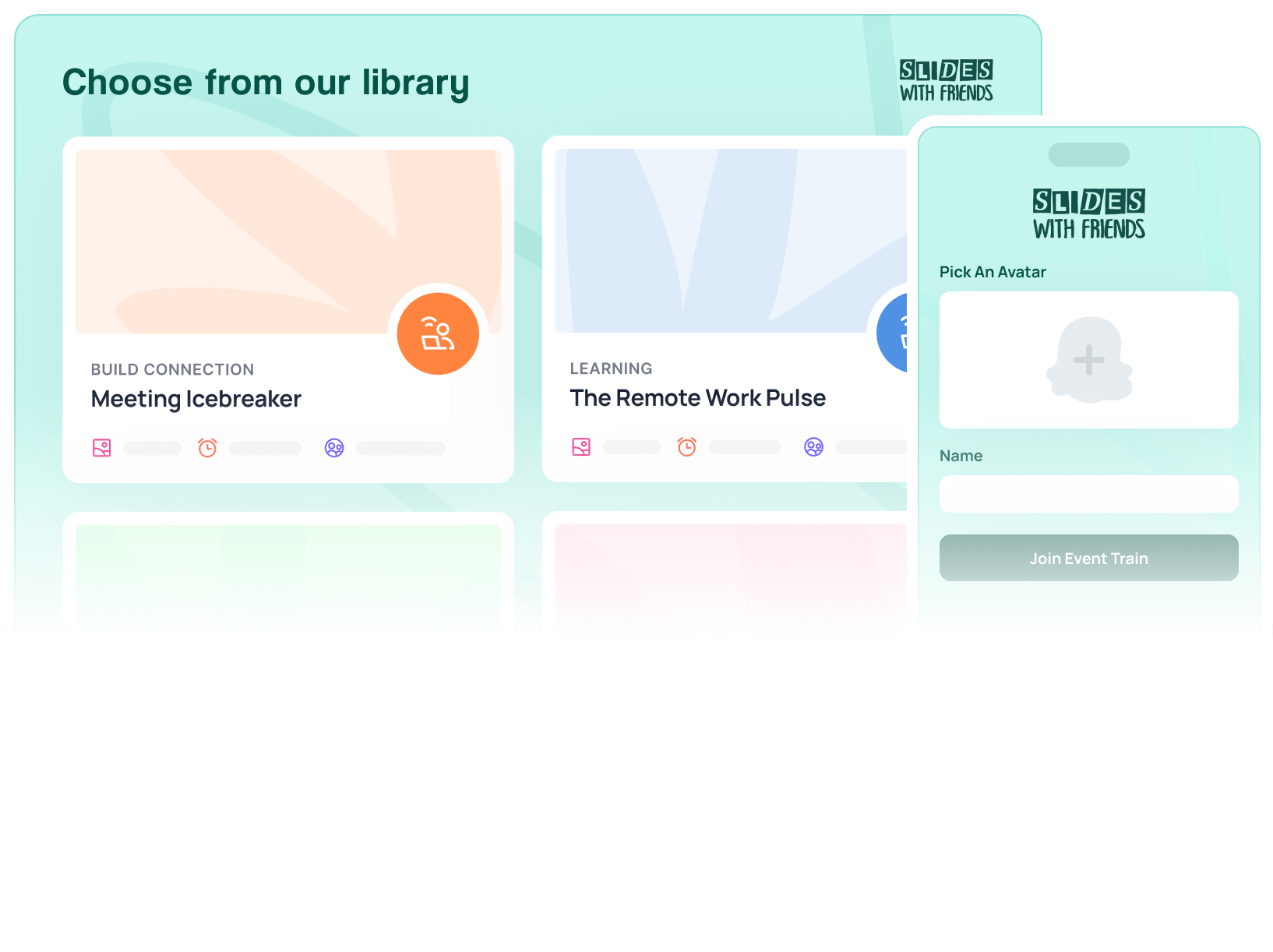5 Sales Team Training Ideas That Really Work
Looking for fun, effective sales team training ideas to replace one-off onboarding meetings? We've got you covered!

U.S. brands pay more than $70 billion annually on training and much of that money goes towards equipping salespeople to make deals. On average, companies spend $1,459 per salesperson, which is nearly 20 percent more than what companies spend on workers in other departments.
But where has all that training led? For the most part, it's provided nothing but disappointment. The ROI of sales training is lackluster, with sales reps forgetting most of what they learned within 90 days.
"Studies indicate that participants in traditional curriculum-based training forget more than 80 percent of the information they were taught within 90 days."
- Frank V. Cespedes and Yuchun Lee, Your Sales Training Is Probably Lackluster. Here's How to Fix It
While this research is startling, it's not surprising. After all, most sales training consists of one-off meetings where new reps are expected to learn large amounts of information in a short period. Or worse, sessions with motivational speakers who encourage employees to crush their goals without providing the tools to do so.
These ineffective approaches are why sales reps go into their workdays unprepared and unable to make more money. Fortunately, there are many solutions to this problem.
By implementing just 5 sales team training ideas, you can get your employees equipped and ready to close deals in no time.
1. Selling Through Curiosity

Whether at a startup or a big name brand, you'll want to train your team with the Selling Through Curiosity concept. The point of this exercise is to challenge your reps to go deeper in conversations and ask questions while maintaining a conversational tone so prospective customers don't think they're being grilled or sold to.
Of course, this is tricky to master.
Being conversational and curious is a delicate balance, but learning how to do it is incredibly beneficial. Trying this idea in your next training session will help your salespeople know how to:
- Engage in and maintain a cooperative dialogue
- Ask 'why' questions
- Draw out ideas from prospects
- Understand a prospect's fears
- Identify a buyer's short-term and long-term goals
These skills are a one-way ticket to bringing in more customers, and acquiring them with Selling Through Curiosity isn't hard. The exercise is simple to kickstart.
Start by proposing different scenarios to your team. Then, tell your sales reps to brainstorm the questions they'd ask in each situation. Encourage your salespeople to think creatively and critically, specifically with their questions. Some great open-ended questions to start with include:
- "Why do you do it that way?"
- "What would you like to see improved?"
- "How is that preventing you from reaching your goals?"
You can also have your team work individually or in small groups. And allow time for everyone to share their responses, so the team can offer feedback and hear different opinions.
2. Focus on Team Building
Team building may seem cliche, but it's a fantastic way to create comraderie and trust within your sales team. The more you focus on creating these connections, the more likely your team will be to ask for help, be honest about their struggles, and put in the work to improve.
One way you can ensure your team knows enough about your company, target audience, and products or services (while team building!) is by playing a trivia game called All About the Benjamins.
The slide deck is available with Slides With Friends and resembles a PowerPoint presentation, except it's interactive and engaging. It has many features to help reps have as much fun as possible, and team members can submit answers using their mobile devices.

While the deck comes with it's own questions about different Benjamins, you can also change the questions to focus on your company, target audience, and products or services. That way, you can quiz your team to see who knows what's necessary to make money. Some examples of questions you can ask include:
- What are the top things our ideal customer wants?
- Where do the majority of leads come from?
- Which product or service has (insert feature)?
- Which product or service alleviates (insert prospect's fear)?
The game can be as long or short as you want. The ready-to-play deck has eight questions, but you can duplicate slides to add more prompts. You can also create rounds and present the scores after each round to create a friendly competition.
Once you're ready to play, simply make your screen or monitor visible to your reps. Then, you can launch the game!
3. Shadow a Sales Call
Want to help your reps have better calls? Then, start shadowing their conversations with prospects. This sales team training idea is a surefire way to improve your employees' techniques. With it, your sales reps will receive many benefits, including:
- Corrections to enhance their sales strategies
- Real-world practice conducting cold calls and sales calls
- Insight into their strengths and how to sharpen their existing skills
Implementing this exercise is also easy because the name says it all. Simply choose a salesperson to focus on for a couple of hours. Then, shadow their sales calls, writing down areas that need improvement and things they're already doing well.
Once you've finished shadowing, provide feedback, taking care to boost their morale instead of tearing them down. Then, move on to the next sales rep.
4. Develop an Elevator Pitch Together

People have multiple things begging for their attention. So, if your salespeople want prospects to glance their way, they need a short, attention-grabbing message that will captivate even the most distracted lead.
What better way to have this than with elevator pitch training?
This exercise will come in handy for reps at networking events, on calls, and at conferences. During your training session, you can jumpstart this activity by having your sales team work together to brainstorm a universal pitch. When determining whether it's good, remember an elevator pitch must:
- Provide a brief overview of your brand, product, or service
- Have zero jargon to increase relatability
- Have irrefutable claims, so no one questions your company's goals and mission
- Entice buyers to move forward, believing any risk is worth the reward
Once your sales team has nailed down a pitch, have them personalize it to match their unique personalities. That way, it's easier for them to deliver the message, and they don't sound robotic. Only after this step should they begin rehearsing it for each other.
And if you want to take things a step further, have your reps record their calls with potential customers so your team can share their recorded elevator pitch. Then, you all can work together to assess which parts of the message resonated best with prospects and should continue being used.
5. Learn How to Handle Objections
Every salesperson knows objections are a part of the job, but handling these complaints well is crucial to success. For your reps to flourish, you must teach them how to respond to common objections to ensure they don't stop pursuing leads but find opportunities to still close deals.
That's why learning how to handle any argument is an incredibly important sales team training idea to implement. Doing so will help your team:
- Identify which complaints they'll likely hear in the sales process
- Understand how to respond to common objections
- Discover how to maintain a positive attitude in a difficult situation
How do you pull off this idea, though?
First, ask reps to write down every objection they hear on calls and in person. Then, schedule a meeting a week later so that your team can share and analyze the objections they received. If anyone overcame the objections they heard, this would be an appropriate time for them to share how they did so.
Also, use this time to brainstorm additional ways to respond to the objections.
Afterward, have your sales team split into pairs to do mock calls, with one person voicing objections and the other responding. If possible, have experienced sales reps partner with newer members, as knowledgeable colleagues might be able to provide better feedback.
Supercharge Your Sales Team

If you want your sales reps to do better, you need to train them adequately. That means no more motivational speakers who pump up employees without pouring into their skills and no more one-off onboarding trainings that deliver too much information. Those methods don't lead to positive results.
For your salespeople to truly improve and close deals, you need to rely on fun, engaging sales training ideas over the course of several weeks. Thankfully, implementing these long-term training goals is as simple as picking an activity above and gathering your team together!


Ready to ditch the dull, and run team sessions that people will actually enjoy?
Get started with a Slides with Friends deck in no time. We’ve got all the interactive features you need in one easy-to-learn, easy-to-set-up tool.















